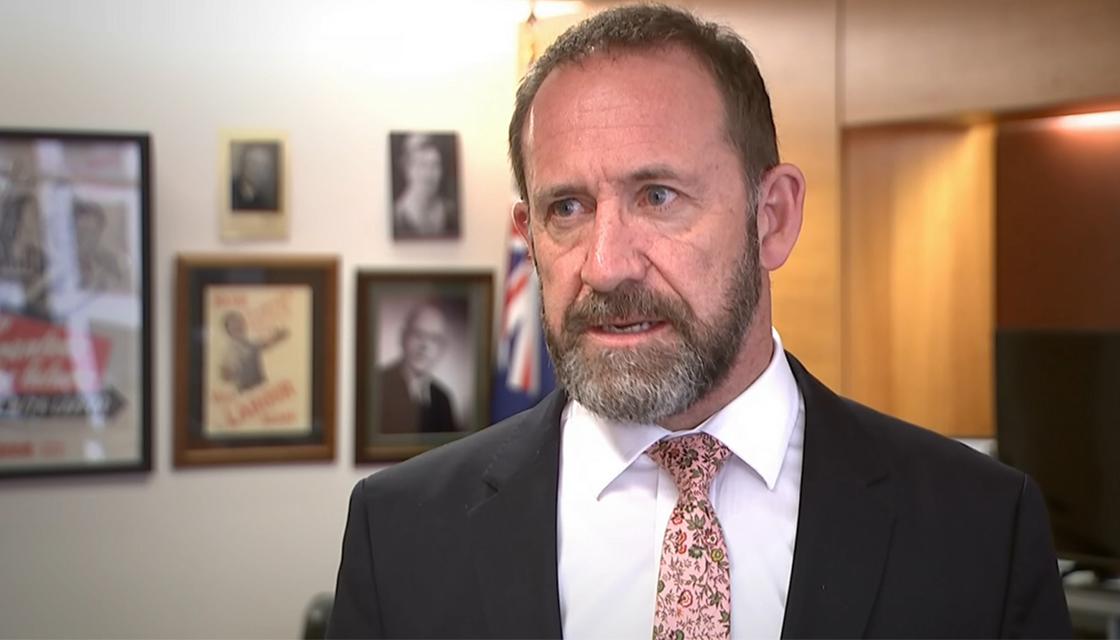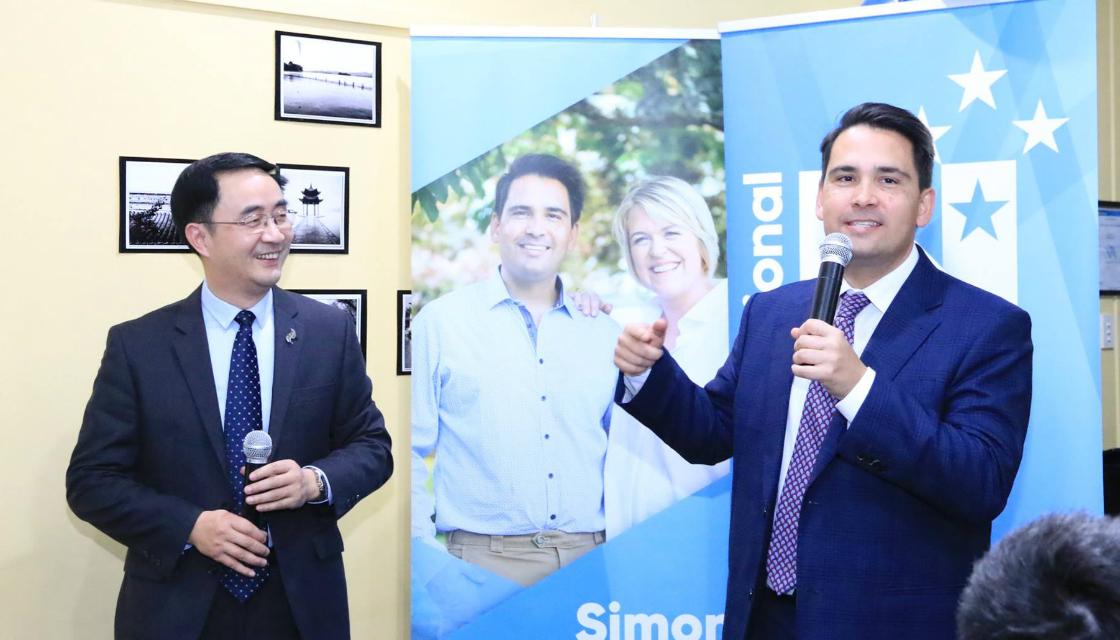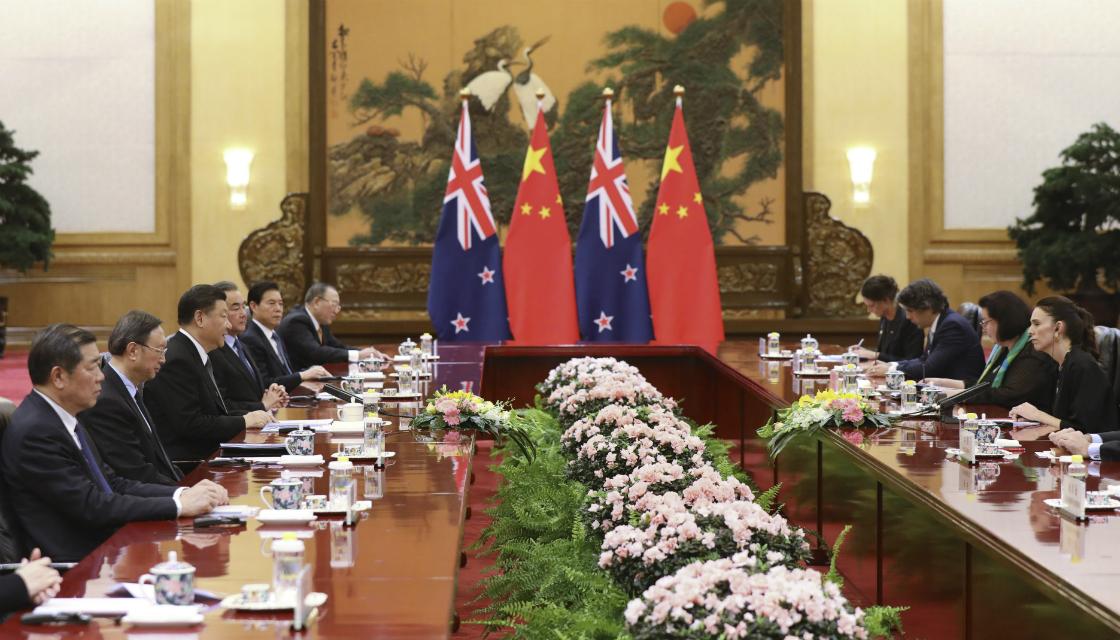New Zealand's political system has been described by a top spy as "compromised" and that its Five Eyes membership is "on the edge of viability" because of Chinese influence.
The senior intelligence official, who has not been named, told the Financial Times New Zealand has a "supine" attitude to China and suggested it could cost New Zealand its place in the Five Eyes intelligence network.
Jamil Anderlini, the Financial Times' Asia Editor, said while New Zealand may seem like an unlikely target for the Chinese Communist Party (CCP) to infiltrate, it is "attractive to Beijing as the soft underbelly" of the Five Eyes.
Andrew Little, the minister responsible for New Zealand's spy agencies, is pushing back.
"The allegations made by the unnamed source are incorrect," he told Newshub. "Our relationships with our Five Eyes partners remain strong and enduring."
Similar concerns about New Zealand's place in the Five Eyes have been raised by senior intelligence officials in the United States, who in 2018 said China had "gotten very close to or inside the political core" of New Zealand.
Anderlini, a New Zealander who has studied China and lived there, pointed out anxieties raised by the US intelligence officials about New Zealand political parties receiving donations from sources linked to the CCP.
Opposition leader Simon Bridges has been accused of committing electoral fraud by splitting up a $150,000 donation from a Chinese businessman into smaller amounts to avoid declaring it, as the current rules dictate.
The National Party leader has denied the allegations and a Serious Fraud Office investigation is ongoing.
Minister Little announced a ban in December on foreign donations to political parties of more than $50 to avoid foreign powers seeking influence in New Zealand.

"The new law bans all foreign donations over $50 and places a due diligence requirement on party general secretaries in relation to all donations," Little told Newshub.
But Anderlini is not convinced it will help. He said the legislation rushed through Parliament last month "has done little to close off the loopholes that allow this kind of influence-buying".
Botany MP Jami-Lee Ross, who accused Bridges of electoral fraud, says the ban "does nothing to close the back door to foreigners influencing NZ politics through companies and other structures".
Ross, a former National MP, says the only way to effectively ban foreigners from influencing politics is to restrict who can make donations to people who are entitled to vote in New Zealand elections.

The Justice Select Committee published its final report in December from an inquiry into the most recent general and local New Zealand elections.
It recommended that the Government "examine how to prevent transmission through loopholes, for example, shell companies or trusts".
The Electoral Commission is currently looking into allegations New Zealand First has been hiding donations through the New Zealand First Foundation.
Anderlini also mentioned Dr Jian Yang, the National list MP who in 2017 admitted to educating Chinese spies so they could monitor other countries' communications - but he denied being a spy himself.
It was revealed at the time that the New Zealand Security Intelligence Service (NZSIS) had investigated Dr Yang, who became an MP in 2011.
Anderlini said it was "astonishing" that a man who "spent at least 15 years working for China's military intelligence apparatus remains an elected Member of Parliament" in New Zealand.
Dr Yang has refuted allegations that question his loyalty to New Zealand.

The National MP was scrutinised earlier this month when Stuff revealed he had helped organise a controversial trip to China with Bridges last year where they met with an official described as the head of China's "secret police".
Dr Yang's shared electorate office was vandalised on Friday by a far-right group who put up posters showing a Chinese flag being painted over a New Zealand flag with the caption: "Don't let them steal your country!"
Bridges told Magic Talk this week he has no concerns "at all" about Dr Yang's ties to the CCP.
He said Dr Yang was involved in organising his China trip because the Ministry of Foreign Affairs and Trade hadn't lined up meetings with enough senior officials.
"As leader of the Opposition, I get third rate meetings... We used our ability to get better meetings in the countries we went to."

Anderlini also criticised Prime Minister Jacinda Ardern for going "out of her way to avoid even mentioning the topic of Chinese political interference".
He suggested that, because China is New Zealand's largest export destination, Ardern may fear Beijing would respond with economic sanctions.
Canterbury University Professor Anne-Marie Brady, an expert in Chinese politics, described Anderlini's analysis of the New Zealand-China relationship as "superb".



